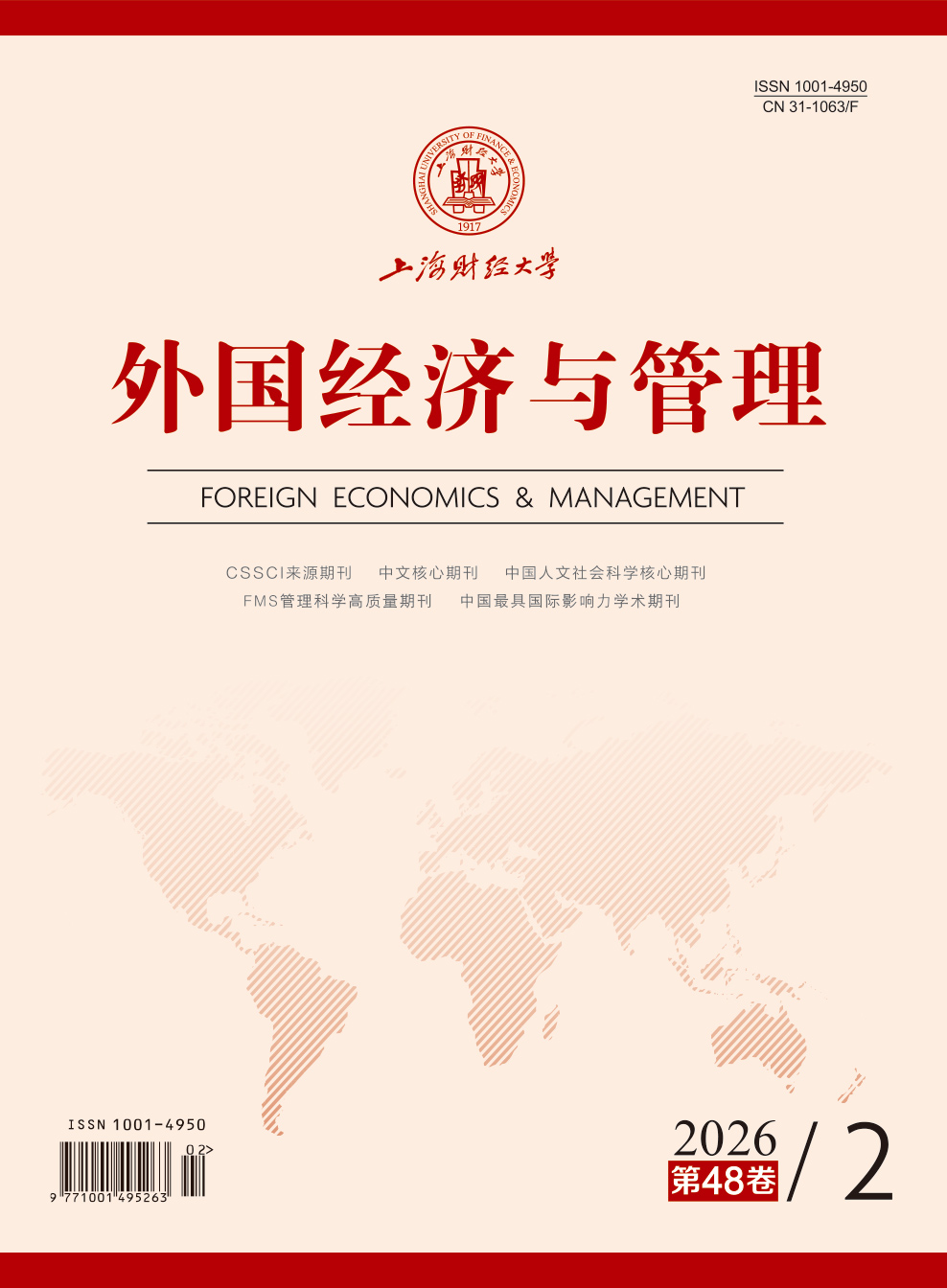家族传统与家族企业社会责任之间的关系机制仍然不甚清晰。本文基于“传统约束论”与“传统资源论”整合的视角,通过对九如城的案例研究,探究了家族传统与家族企业社会责任之间的互动关系。研究表明:深受中国传统家庭伦理观影响的“慈孝传统”“积善传统”和“礼法传统”对家族企业履行社会责任产生了重要影响。在家族企业家的推动下,家族传统故事的传扬和传统仪式的推行有助于家族成员和家族企业员工形成特定的伦理价值观,家族传统能够为家族企业履行社会责任提供必要的情感支持并指引其聚焦到“孝老慈幼”公益领域,而响应长辈召唤和信奉善因福报很可能就是家族企业履行社会责任的初始动因。家族企业社会责任实践也有助于为家族传统赋予新内涵和新解释,促进家族传统的传承、保护与弘扬。本文厘清了家族传统与家族企业企业社会责任之间的影响关系,为共同富裕时代背景下推动家族企业更好地践行社会责任以及弘扬优良家族传统提供了新的见解和启示。
家族传统与家族企业社会责任——基于九如城的案例研究
摘要
参考文献
1 陈凌, 鲁莉劼, 朱建安. 中国家族企业成长与社会责任——第四届“创业与家族企业成长”国际研讨会侧记[J]. 管理世界,2008, 24(12): 160-164. DOI:10.19744/j.cnki.11-1235/f.2008.12.017
3 李新春, 贺小刚, 邹立凯. 家族企业研究: 理论进展与未来展望[J]. 管理世界,2020, 36(11): 207-228. DOI:10.3969/j.issn.1002-5502.2020.11.015
6 田旭明. 修德齐家: 中国传统家训文化的伦理价值及现代建构[J]. 江海学刊,2016, (1): 221-226. DOI:10.3969/j.issn.1000-856X.2016.01.037
8 张忠. 论中国善恶报应观的形成及其当代启示意义[J]. 中州学刊,2014, (9): 113-118. DOI:10.3969/j.issn.1003-0751.2014.09.021
9 朱沆, 叶琴雪, 李新春. 社会情感财富理论及其在家族企业研究中的突破[J]. 外国经济与管理,2012, 34(12): 56-62. DOI:10.16538/j.cnki.fem.2012.12.006
10 邹立凯, 宋丽红, 梁强. “后天的慈善家”——传承背景下家族企业慈善捐赠研究[J]. 外国经济与管理,2020, 42(3): 118-135. DOI:10.16538/j.cnki.fem.20200402.101
11 Bhatnagar N, Sharma P, Ramachandran K. Spirituality and corporate philanthropy in Indian family firms: An exploratory study[J]. Journal of Business Ethics,2020, 163(4): 715-728. DOI:10.1007/s10551-019-04394-3
12 Breeze B. Natural philanthropists: Findings of the family business philanthropy and social responsibility inquiry[M]. London: Institute for Family Business (UK), 2009.
13 Brinkerink J, Bammens Y. Family influence and R&D spending in Dutch manufacturing SMEs: The role of identity and socioemotional decision considerations[J]. Journal of Product Innovation Management,2018, 35(4): 588-608. DOI:10.1111/jpim.12428
14 Dacin M T, Dacin P A. Traditions as institutionalized practice: Implications for deinstitutionalization[A]. Greenwood R, Oliver C, Lawrence T B, et al. The SAGE handbook of organizational institutionalism[M]. London: Sage Publications, 2008.
15 Dacin M T, Dacin P A, Kent D. Tradition in organizations: A custodianship framework[J]. Academy of Management Annals,2019, 13(1): 342-373. DOI:10.5465/annals.2016.0122
16 De Massis A, Frattini F, Kotlar J, et al. Innovation through tradition: Lessons from innovative family businesses and directions for future research[J]. Academy of Management Perspectives,2016, 30(1): 93-116. DOI:10.5465/amp.2015.0017
17 Dou J S, Zhang Z Y, Su E. Does family involvement make firms donate more? Empirical evidence from Chinese private firms[J]. Family Business Review,2014, 27(3): 259-274. DOI:10.1177/0894486514538449
18 Erdogan I, Rondi E, De Massis A. Managing the tradition and innovation paradox in family firms: A family imprinting perspective[J]. Entrepreneurship Theory and Practice,2020, 44(1): 20-54. DOI:10.1177/1042258719839712
19 Faller C M, Knyphausen-Aufseß D Z. Does equity ownership matter for corporate social responsibility? A literature review of theories and recent empirical findings[J]. Journal of Business Ethics,2018, 150(1): 15-40. DOI:10.1007/s10551-016-3122-x
20 Farh J L, Earley P C, Lin S C. Impetus for action: A cultural analysis of justice and organizational citizenship behavior in Chinese society[J]. Administrative Science Quarterly,1997, 42(3): 421-444. DOI:10.2307/2393733
21 Feliu N, Botero I C. Philanthropy in family enterprises: A review of literature[J]. Family Business Review,2016, 29(1): 121-141. DOI:10.1177/0894486515610962
22 Gioia D A, Corley K G, Hamilton A L. Seeking qualitative rigor in inductive research: Notes on the Gioia methodology[J]. Organizational Research Methods,2013, 16(1): 15-31. DOI:10.1177/1094428112452151
23 Gómez-Mejía L R, Haynes K T, Núñez-Nickel M, et al. Socioemotional wealth and business risks in family-controlled firms: Evidence from Spanish olive oil mills[J]. Administrative Science Quarterly,2007, 52(1): 106-137. DOI:10.2189/asqu.52.1.106
24 Gond J P, El Akremi A, Swaen V, et al. The psychological microfoundations of corporate social responsibility: A person-centric systematic review[J]. Journal of Organizational Behavior,2017, 38(2): 225-246. DOI:10.1002/job.2170
25 Huy Q, Zott C. Exploring the affective underpinnings of dynamic managerial capabilities: How managers’ emotion regulation behaviors mobilize resources for their firms[J]. Strategic Management Journal,2019, 40(1): 28-54. DOI:10.1002/smj.2971
26 Labelle R, Hafsi T, Francoeur C, et al. Family firms’ corporate social performance: A calculated quest for socioemotional wealth[J]. Journal of Business Ethics,2018, 148(3): 511-525. DOI:10.1007/s10551-015-2982-9
28 Lee Y S, Shin W J. Marketing tradition-bound products through storytelling: A case study of a Japanese sake brewery[J]. Service Business,2015, 9(2): 281-295. DOI:10.1007/s11628-013-0227-5
29 Li W W, Au K Y F, He A, et al. Why do family-controlled firms donate to charity? The role of intrafamily succession intention, social status, and religiosity[J]. Management and Organization Review,2015, 11(4): 621-644. DOI:10.1017/mor.2015.10
30 Lu F F, Kwan H K, Zhu Z. The effects of family firm CEO traditionality on successor choice: The moderating role of socioemotional wealth[J]. Family Business Review,2021, 34(2): 213-234. DOI:10.1177/0894486520967832
31 Lumpkin G T, Martin W, Vaughn M. Family orientation: Individual-level influences on family firm outcomes[J]. Family Business Review,2008, 21(2): 127-138. DOI:10.1111/j.1741-6248.2008.00120.x
32 Mariani M M, Al-Sultan K, De Massis A. Corporate social responsibility in family firms: A systematic literature review[J]. Journal of Small Business Management, 2021,doi: 10.1080/00472778.2021.1955122.
33 Marques P, Presas P, Simon A. The heterogeneity of family firms in CSR engagement: The role of values[J]. Family Business Review,2014, 27(3): 206-227. DOI:10.1177/0894486514539004
34 Pan S L, Tan B. Demystifying case research: A structured–pragmatic–situational (SPS) approach to conducting case studies[J]. Information and Organization,2011, 21(3): 161-176. DOI:10.1016/j.infoandorg.2011.07.001
36 Pettigrew A M. Longitudinal field research on change: Theory and practice[J]. Organization Science,1990, 1(3): 267-292. DOI:10.1287/orsc.1.3.267
37 Schwass J, Lief C. About family, business and philanthropy[R]. Perspectives for Managers, No. 165, 2008.
38 Shils E. Tradition[M]. Chicago: University of Chicago Press, 1981.
39 Shoham H. Rethinking tradition: From ontological reality to assigned temporal meaning[J]. European Journal of Sociology,2011, 52(2): 313-340. DOI:10.1017/S0003975611000129
40 Suddaby R, Jaskiewicz P. Managing traditions: A critical capability for family business success[J]. Family Business Review,2020, 33(3): 234-243. DOI:10.1177/0894486520942611
41 Vazquez P. Family business ethics: At the crossroads of business ethics and family business[J]. Journal of Business Ethics,2018, 150(3): 691-709. DOI:10.1007/s10551-016-3171-1
42 Ye Y, Li K Y. Impact of family involvement on internal and external corporate social responsibilities: Evidence from Chinese publicly listed firms[J]. Corporate Social Responsibility and Environmental Management,2021, 28(1): 352-365. DOI:10.1002/csr.2053
43 Yin R K. Case study research: Design and methods[M]. 5th ed. Thousand Oaks: Sage Publications Inc, 2014.
44 Zellweger T M, Nason R S. A stakeholder perspective on family firm performance[J]. Family Business Review,2008, 21(3): 203-216. DOI:10.1177/08944865080210030103
45 Zhao X P, Chen S M, Xiong C. Organizational attention to corporate social responsibility and corporate social performance: The moderating effects of corporate governance[J]. Business Ethics:A European Review,2016, 25(4): 386-399. DOI:10.1111/beer.12124
引用本文
邓少军, 于保平, 周胜. 家族传统与家族企业社会责任——基于九如城的案例研究[J]. 外国经济与管理, 2022, 44(10): 3-19.
导出参考文献,格式为:
下一篇:虚拟现实营销研究综述和展望





 5775
5775  12662
12662

